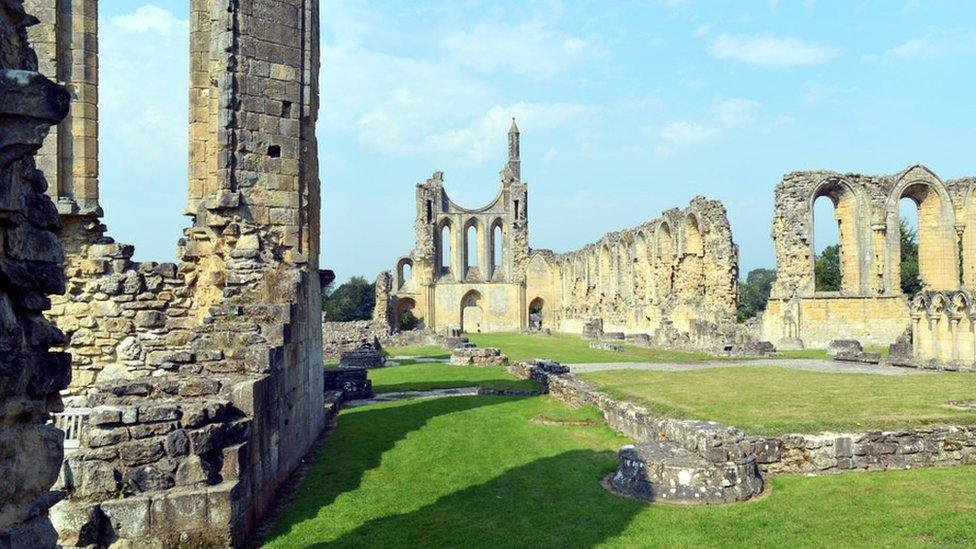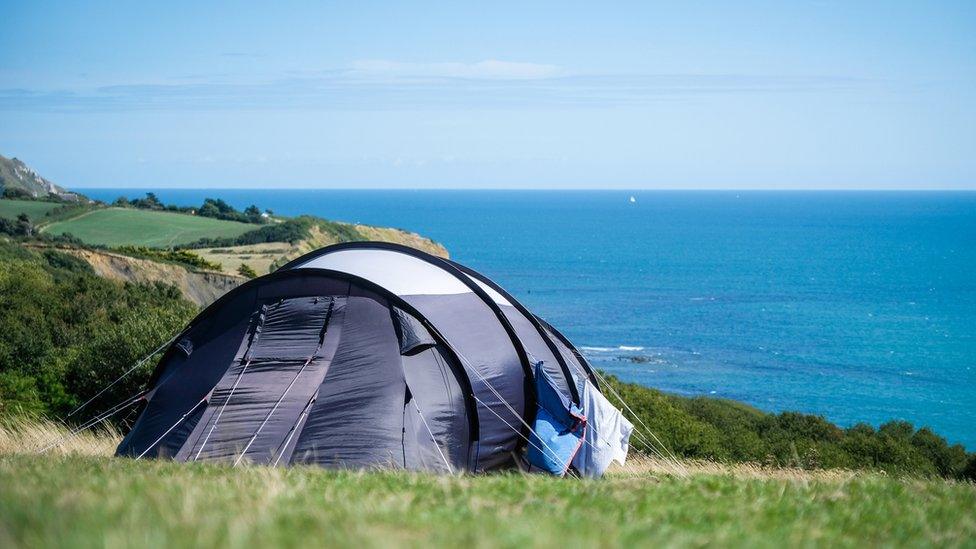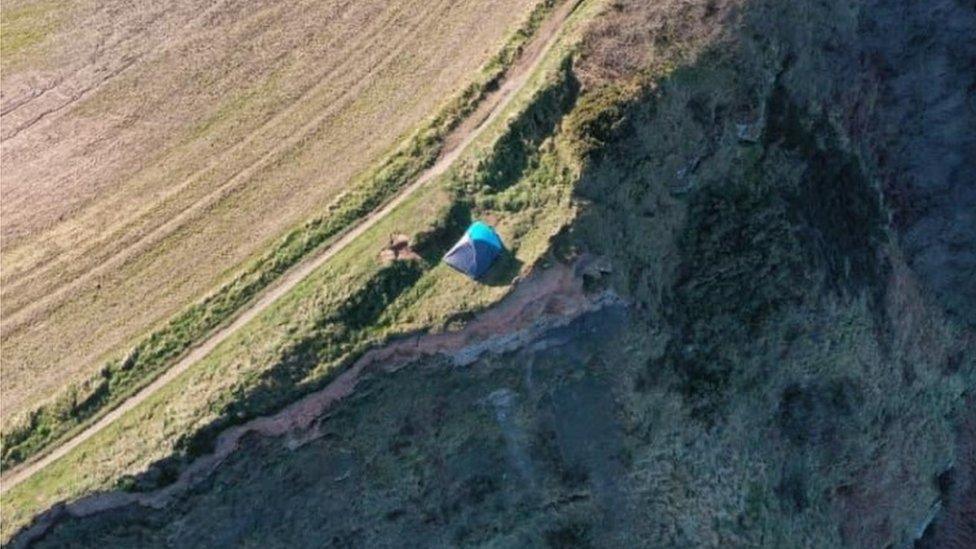Byland Abbey: Glamping plans at Grade II-listed inn criticised
- Published

Byland Abbey in Ampleforth is run by English Heritage
Plans to create a glamping destination next to the ruins of a 12th Century monastery have been criticised.
If approved, 12 bell tents would be put up in the garden of the Grade II-listed Byland Abbey Inn in North Yorkshire.
Jake Hunt, who runs the tea rooms, restaurant and bed and breakfast, said it would have a positive impact on his family's business, post-pandemic.
However former National Trust chair Sir Nigel Forbes Adam said it would create a "noisy, inappropriate environment".
Planning officers at North York Moors National Park Authority have recommended the plans for approval.
Mr Hunt took over the running of the Byland Abbey Inn, Ampleforth, from conservation charity English Heritage in October last year.
In documents submitted with the application, he said: "We believe this proposal speaks to the strategic aims of North York Moors National Park and offers huge positives to the area and a critical lifeline for a small business that has been severely impacted by the pandemic."
'Consternation'
The abbey is an English Heritage visitor attraction, including the ruins of the former monastery which inspired the design of church buildings throughout the North, including York Minster's rose window.
According to the Local Democracy Reporting Service (LDRS), Mr Hunt said the campsite would have "minimal to zero impact" on the 12th Century Cistercian abbey as it would be limited to a discreet area of an underutilised garden for seven months a year.
The proposals have startled the area's residents however, particularly as the application has been made by a tenant of English Heritage.
Sir Nigel, a former director and president of the Yorkshire Agricultural Society, which runs the Great Yorkshire Show, said the noise from cars arriving and leaving the campsite would cause "consternation".
"The presence of the abbey must be preserved," he said.
Residents have also claimed the campsite would cause car parking issues, and spoil views.
These concerns have been dismissed by Historic England and the park authority's conservation officer.
Planning officers said it would provide an additional form of accommodation in a tourism hotspot.
They concluded: "With the decline of many public houses in current times, it is considered that ensuring the long-term viability of such a business is extremely important."

Follow BBC Yorkshire on Facebook, external, Twitter, external and Instagram, external. Send your story ideas to yorkslincs.news@bbc.co.uk, external.
Related topics
- Published5 June 2021

- Published28 February 2021
